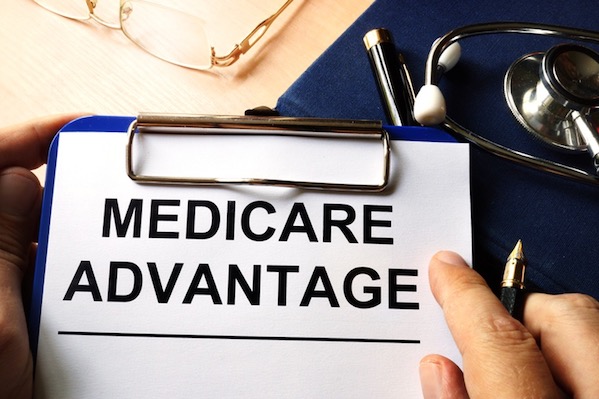MA Beneficiaries Have Lower Utilization Than Traditional Medicare
October 6, 2023
Source: drugdu
 373
373
A new study found that MA beneficiaries have more than 50% fewer inpatient stays and 22% fewer emergency department visits than traditional Medicare enrollees.
By MARISSA PLESCIA

Medicare Advantage enrollees have significantly lower healthcare utilization and expenditures when compared to traditional fee-for-service Medicare enrollees, a new study shows.
The study, published last week, was conducted by Harvard Medical School and Inovalon, a provider of cloud-based software solutions. It relied on Inovalon’s dataset, which tracks patients’ healthcare utilization under commercial insurance prior to turning 65 and their utilization after turning 65 under MA or traditional Medicare. The study period was from 2015 to 2019, and the researchers adjusted for differences between MA and traditional Medicare beneficiaries, such as demographic, clinical and socioeconomic factors.
The researchers found that MA beneficiaries have more than 50% fewer inpatient stays and 22% fewer emergency department visits than traditional Medicare enrollees. In addition, there is comparable access to high quality preventive and routine care use: MA beneficiaries just have 7% fewer primary care provider visits and similar prescription drug use.
“We didn’t see any reductions in quality of care under Medicare Advantage,” said Boris Vabson, a health economist at Harvard Medical School and lead researcher of the study, in an interview. “So basically, Medicare Advantage appears to have lower utilization — especially the acute care utilization that insurers try to avoid — and at the same time, it’s able to maintain quality of care.”
Christie Teigland, vice president of research science and advanced analytics at Inovalon, added that this finding is contrary to previous research.
“[There have been] reports saying Medicare Advantage is denying access to care,” Teigland claimed. “Our data shows that is not the case. If Medicare Advantage was denying access to care, you would see the opposite results of what we saw. You would see higher rates of hospitalizations, higher rates of emergency room visits. Because if you’re not getting the care you need, you’re not getting the preventive care you need, you’re going to end up in the hospital or the emergency room.”
The study also found that overall healthcare expenditures are 12% lower for MA than for traditional Medicare.
In addition, the differences in healthcare utilization don’t just exist between MA enrollees and traditional Medicare enrollees. Traditional Medicare beneficiaries who enrolled at the age of 65 have 35% higher healthcare utilization two years after enrolling compared to the two years before enrolling. There are no significant differences for MA beneficiaries before and after enrolling.
“People don’t suddenly just get really sick when they turn 65, and you did not see that trend in Medicare Advantage,” Teigland said.
The findings “really show the value of coordinating care and coordination of benefits and coordination of medications and all of the preventive services that Medicare Advantage is incentivized to provide,” she added. “That doesn’t always happen in fee-for-service Medicare.”
This is the second of a series of reports that Harvard and Inovalon are doing. Its previous report analyzed the characteristics of those who choose traditional Medicare and those who choose MA. It found that those who select MA are more likely to be socioeconomically disadvantaged. The researchers’ next report will look more closely at quality measures between MA and traditional Medicare.
Photo: designer491, Getty Images
Read more on
- The first subject has been dosed in the Phase I clinical trial of Yuandong Bio’s EP-0210 monoclonal antibody injection. February 10, 2026
- Clinical trial of recombinant herpes zoster ZFA01 adjuvant vaccine (CHO cells) approved February 10, 2026
- Heyu Pharmaceuticals’ FGFR4 inhibitor ipagoglottinib has received Fast Track designation from the FDA for the treatment of advanced HCC patients with FGF19 overexpression who have been treated with ICIs and mTKIs. February 10, 2026
- Sanofi’s “Rilzabrutinib” has been recognized as a Breakthrough Therapy in the United States and an Orphan Drug in Japan, and has applied for marketing approval in China. February 10, 2026
- Domestically developed blockbuster ADC approved for new indication February 10, 2026
your submission has already been received.
OK
Subscribe
Please enter a valid Email address!
Submit
The most relevant industry news & insight will be sent to you every two weeks.



